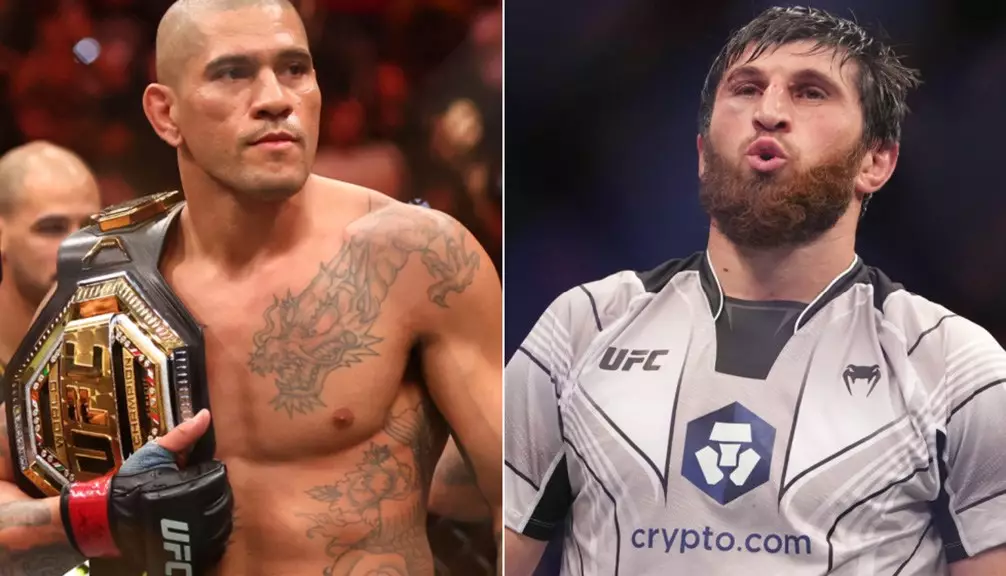In the ever-dynamic world of the Ultimate Fighting Championship (UFC), last-minute changes and adaptations to fight cards can often create a stir among fighters and fans alike. UFC 310, scheduled for December 7 at the renowned T-Mobile Arena in Las Vegas, found itself in a precarious situation when welterweight champion Belal Muhammad had to withdraw from his title defense against Shavkat Rakhmonov. This unexpected turn left the event without a main event, prompting fighters to step up, and one voice notably distinct in this fray was that of Magomed Ankalaev.
Ankalaev’s Readiness Contrasted with Pereira’s Hesitance
Ankalaev (19-1-1 MMA, 10-1-1 UFC) is adamant about his willingness to step into the cage, asserting that he was prepared to salvage the event—even on short notice. His determination underscores a burning desire to earn a title shot against the reigning light heavyweight champion, Alex Pereira, who himself has made headlines with his recent performances. However, while Ankalaev expressed readiness, Pereira (12-2 MMA, 9-1 UFC) has shown more caution, leaning towards recovery after an intense few months that included three title fights.
The stakes were high, and for Ankalaev, the challenge was not merely about seizing the opportunity but also about proving his mettle. He called out Pereira’s hesitation, referring to it as “fake news” and maintaining that he was the only fighter prepared for a December clash. This phrasing suggests a deeper narrative where Ankalaev desires not only the championship belt but also to showcase his supremacy against a rival who has earned respect through his knockout prowess.
Meanwhile, Pereira’s reluctance finds roots in tangible concerns. In a recent interview, he confessed to ongoing pain in his hand following a fight against Khalil Rountree, which allegedly left him in distress during the match. He described a moment of potential worry during the bout, believing he might have broken a bone. Such injuries highlight the physical toll of fighting in high-stakes matches, particularly for a champion striving to maintain a relentless schedule.
This aspect of Pereira’s story adds depth to the discussion of readiness in combat sports. While fighters may claim to be prepared, health and recovery are vital components that impact their performance. Ankalaev’s criticisms might stem from a place of frustration, but it’s essential to recognize the physical realities competitors face after grueling encounters.
In the midst of these dynamics, Ankalaev remains optimistic about the future of their potential clash. He hinted at possible fight dates in early 2025, indicating a willingness to engage with Pereira when the latter is fit to compete. The urgency behind Ankalaev’s need for a title shot is palpable, yet it must coexist with his respect for Pereira’s timeframe to recover fully.
Ultimately, the saga leading up to UFC 310 exemplifies the complexity surrounding fight promotions, athlete readiness, and the unpredictable nature of combat sports. As the situation unfolds, fans remain eager to see how the rivalry between Ankalaev and Pereira develops, and which fighter will emerge as the reigning champion when they finally do meet.

